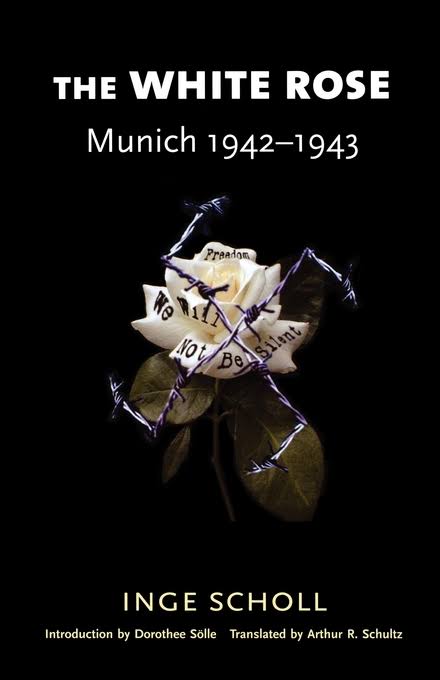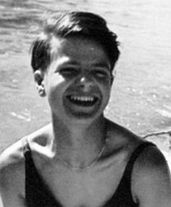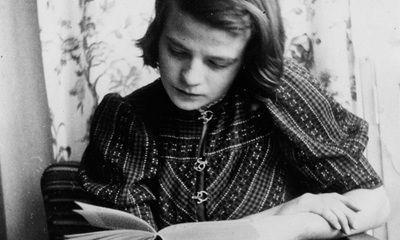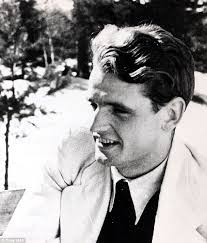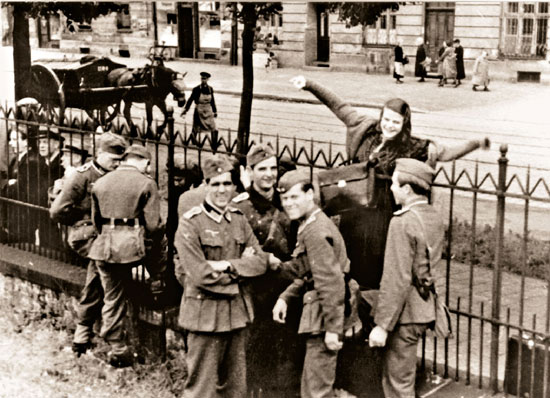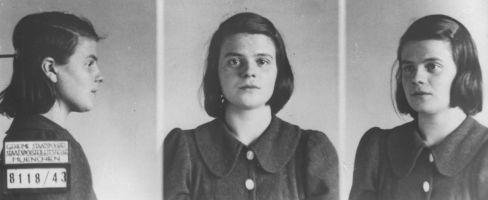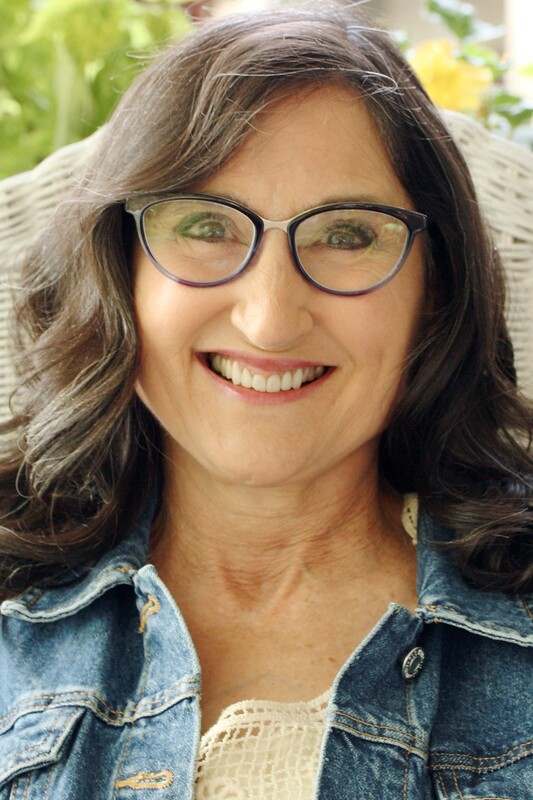|
I read the The White Rose when I was eleven or twelve years old. Ten days ago, I wouldn’t have been able to tell you the title or name of the protagonist. But then I stumbled upon the story, a story I had not heard in more than 40-years, a story that often came to mind, but blurry in my memory. I stumbled upon a live wire stretching back to my childhood and the shock and horror of that particular story surged up to the present, as fresh as the day I first felt it. For many, it's The Diary of Anne Frank that brings Nazi Germany up close and personal for the first time. For me, it was The White Rose and Sophie Scholl. Sophie set the standard for courage, both consciously and unconsciously throughout my life. read practically a book a day in my pre- and early-teen years, and I liked nothing more than a chilling adventure story that kept me reading well past my bedtime. The White Rose was such a story, though it was not fiction, as were most books I read. When I reached the last chapter and young Sophie and her brother Hans were executed, I was caught by complete surprise. Nothing in my short life had prepared me for Hitler. The siblings, 21-yr-old Sophie and 24-year-old Hans printed and distributed literature denouncing Hitler and the Nazi government. The pamphlets called on Germans to "cast off the cloak of indifference" and engage in passive resistance to topple the regime. Hans and his friends went out at night and painted slogans on buildings at the university they attended: Hitler the Mass Murderer and Freedom! This photo shows the group at the Munich railway station in 1942, the summer before they were arrested and put to death. Sophie is behind the fence, Hans in the center facing the camera, Christoph Probst to the fore, and Alexander Schmorell and Willi Graf to the right. Since I rediscovered Sophie's story in the book Women Heroes of World War II, by Kathryn J. Atwood, I've had a sick-to-my-stomach feeling of fear and dread off and on, as well as finding myself close to tears in unguarded moments. As my childhood experience of this story revisited me, I realized I had often measured myself against Sophie. Holding my whiny self up to her light, I always fell short. Below, Sophie Scholl's mug shots. 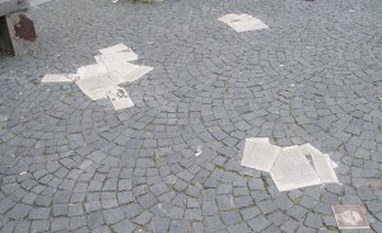 Memorial in Munich Memorial in Munich When I first came across Fannie Sellins’ story, (which is now my forthcoming book) the title of the article was In the Midst of Terror, She Went Out to Her Work. I pursued details as if they were an antidote to my fatal condition. How had Fannie found the courage to go out on the picket line day after day when violent men had threatened to kill her? When I discovered the American military nurses that had been captured POW by the Japanese in WWII, (the subject of Pure Grit) I went on a mad search of the internet for details. I ordered every book I could find that had been written about them. How had these women survived starvation, sickness, isolation for three long years in captivity? How had they kept courage when day 930 in prison camp turned into day 931. As a girl, I could imagine myself bravely printing forbidden pamphlets to protest an unfair government. But I only identified with Sophie to a point. I did not have the courage to risk my life as she did. Sophie’s conviction never left her. She and Hans were executed three hours after their sentencing for treason. The prison guards reported: “They were led off, the girl first, she went without the flicker of an eyelash. None of us understood how this was possible. The executioner said he had never seen anyone meet his end as she did." Sophie told her cell mate the day before her death, "It is such a splendid, sunny day, and I have to go. But how many have to die on the battlefield in these days, how many young promising lives... What does my death matter if by our acts thousands of people are warned and alerted." Today, I am not measuring myself against Sophie's courage. I'm accepting myself for who I am, and I'm freer to see Sophie more clearly, too. When her story is no longer tinged with my self-judgement, I have greater capacity to be inspired by her integrity, to marvel at her valor, and to believe in our human ability to act with virtue in depraved and brutal circumstances. Any thoughts? I'd love to hear from you. Leave your comment below. Comments are closed.
|
I'm fascinated to discover little-known history, stories of people and events that provide a new perspective on why and how things happened, new voices that haven't been heard, insight into how the past brought us here today, and how it might guide us to a better future.
I also post here about my books and feature other authors and their books on compelling and important historical topics. Occasionally, I share what makes me happy, pictures of my garden, recipes I've made, events I've attended, people I've met. I'm always happy to hear from readers in the blog comments, by email or social media. Archives
September 2023
Categories
All
|
